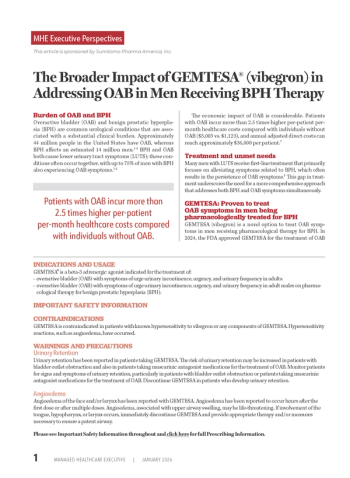
Healthcare Is Local: How Proximity Drives Transformation in Dialysis for Underserved Communities
Sponsored by DaVita.
Understand the critical importance of access to high-quality care in chronic disease management. Sponsored by DaVita.
The American healthcare system, a vast and intricate network, often obscures a fundamental truth: Healthcare is inherently local.
The quality and accessibility of care, particularly for chronic conditions like kidney disease, are inseparably linked to a patient’s community. For people facing end stage kidney disease (ESKD), having consistent access to dialysis treatments close to where they live can mean the difference between managing their health and facing life-threatening complications.
Chronic kidney disease (CKD) affects an estimated 35 million Americans, with a disproportionate burden falling on underserved populations. According to the CDC, Hispanic and Latino adults are 1.3 times more likely to have ESKD than non-Hispanic white adults, and Black Americans are more than three times as likely. Socioeconomic status and geographic location also contribute to significant health disparities. For individuals with ESKD, dialysis — a life-sustaining treatment — typically becomes a recurring necessity, often requiring multiple sessions per week. This creates the critical need for access, a need that can become a burden for people living in rural areas or low-income urban neighborhoods, where access to specialized care is limited.
While the “healthcare is local” mantra holds undeniable truth for patient experience, a deeper look reveals how the national care providers have an opportunity to help optimize healthcare, especially in complex and high-cost specialties like kidney disease. By leveraging scaled infrastructure, these care providers can help address two major challenges: high healthcare costs and pervasive fragmentation of care experiences.
DaVita, a national kidney care provider with more than 2,700 dialysis centers across the U.S., exemplifies how a national footprint can enhance localized care while also helping address systemic issues. A critical aspect of their strategy is proximity — directly addressing logistical hurdles many patients face: Approximately 90% of their patient population lives within 10 miles of a DaVita center.
Convenience matters. Reducing the burden of travel significantly improves treatment adherence. Patients are more likely to receive consistent care when it's easily accessible.
This proximity translates to tangible benefits:
- Improved Treatment Adherence: Regular dialysis sessions are crucial for managing ESKD. Minimizing travel time reduces the likelihood of missed appointments, which can have severe health consequences and lead to more expensive emergency interventions.
- Enhanced Preventive Care and Coordinated Management: Frequent visits to dialysis centers allow healthcare providers to monitor patients closely, facilitating early intervention and management of related health issues like hypertension and diabetes. A large network can also implement standardized protocols and leverage shared electronic health records to enable more coordinated care across different care facilities and reduce the likelihood of fragmented patient experience.
- Serving Underserved Communities: DaVita’s expansive network extends into areas where specialized care is often scarce, ensuring that even those in remote or economically disadvantaged communities have access to life-sustaining treatment. This broad reach helps mitigate health disparities and supports more equitable access to care.
Leveraging our infrastructure also means we’re able to deliver the same level of excellence to all our patients, whether someone lives in an urban center or a more remote, rural community.
This standardization across a vast network is a direct outcome of scale: It allows for the dissemination of best practices, consistent training and uniform quality controls that would be difficult for smaller, independent clinics to achieve.
Closure of a dialysis center can be devastating, but Davita’s ability to keep centers open — even when profitability is a challenge in specific, often underserved locations — is a testament to the power of a national network. By prioritizing access and leveraging operational efficiencies, DaVita provides a lifeline to individuals who might otherwise be forced to travel longer distances or forgo treatment altogether — highlighting the critical role large-scale providers can play in ensuring healthcare access.
We’re able to bring care where it’s needed. Our commitment remains constant: quality care, close to home.
The benefits that come from scaled care delivery extend beyond direct patient experience. As a national care provider, DaVita continues to invest in advanced technologies, clinical research and care model development for broad impact across their centers. This includes sophisticated data analytics to identify high-risk patients and innovative treatment modalities. These investments ultimately benefit the entire system by improving outcomes and helping reduce costs associated with health complications.
The truest measure of a healthcare system isn’t just about delivering world-class care: You must also work to make sure that quality care reaches every doorstep. For those living with kidney disease, the peace of mind that comes from accessible, high-quality care, sustained by a robust national infrastructure offers more than convenience. It’s a lifeline that fundamentally shares their journey.
Newsletter
Get the latest industry news, event updates, and more from Managed healthcare Executive.





















